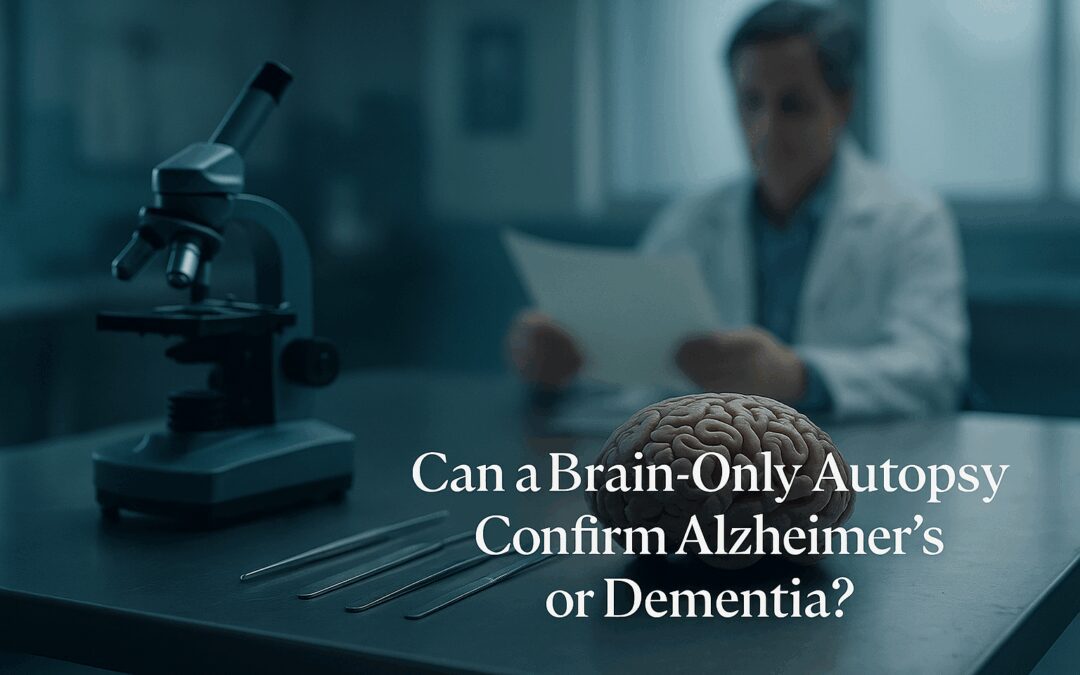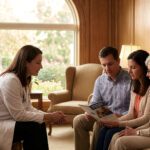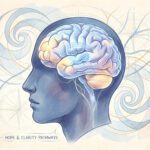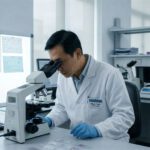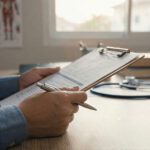Understanding the Value of Postmortem Brain Analysis
When families face unanswered questions after a loved one’s passing, few conditions cause as much confusion and emotional weight as memory-related diseases. Alzheimer’s and dementia are not just medical terms—they represent the gradual loss of a person’s memories, behaviors, and identity. These diseases often lead to long periods of distress and emotional suffering for both the individual and their loved ones.
Families may observe subtle changes that evolve into profound transformations in personality and function. Despite numerous doctor visits, tests, and treatments, certainty is rarely achieved during life. That is where a brain-only autopsy plays a critical role. This specialized examination offers definitive answers and brings closure to years of painful uncertainty.
Why Clinical Diagnosis May Fall Short
During life, diagnosing Alzheimer’s or dementia relies heavily on clinical evaluations such as memory tests, neuroimaging scans, and symptom observations. While these tools provide guidance, they do not guarantee accuracy. Many neurological disorders share overlapping symptoms. Patients may be diagnosed with one condition while suffering from another. Cognitive decline can stem from a mix of issues—not all of which are visible in living patients.
Clinical evaluations may suggest probable Alzheimer’s disease or a general diagnosis of dementia, but the only way to be absolutely certain is by examining brain tissue after death. Postmortem brain analysis can confirm the exact condition by identifying distinct biological markers, like amyloid plaques or tau tangles, which cannot always be detected through blood tests or imaging alone.
Families who watched their loved ones fade may struggle with the ambiguity of a probable diagnosis. A brain autopsy provides a medically conclusive explanation for what they witnessed, ending a painful chapter with clarity.
How a Brain-Only Autopsy Works
A brain-only autopsy is a precise and focused postmortem procedure performed by a board-certified neuropathologist. After the brain is removed, it undergoes a thorough gross and microscopic examination. The brain is first weighed and visually inspected for shrinkage, asymmetry, or lesions. Then, it is dissected into key regions, and samples are preserved, processed, and analyzed under a microscope.
The goal is to identify hallmark changes associated with Alzheimer’s and other neurological disorders. Amyloid plaques, tau tangles, vascular damage, and protein inclusions are among the telltale signs. Neuropathologists match observed pathology with known diagnostic criteria to confirm or rule out diseases like:
- Alzheimer’s disease
- Lewy body dementia
- Vascular dementia
- Frontotemporal dementia
- Parkinson’s-related dementia
Pathologists prepare detailed reports that summarize findings. These documents help families understand the true nature of their loved one’s condition and clarify the progression of the disease.
Families Seek Answers Beyond Life
For many families, requesting a brain-only autopsy is a way to gain answers that were unavailable in life. Years of caregiving and emotional distress may have passed without a firm diagnosis. A postmortem neurological examination ends the speculation.
The results offer families more than just medical facts. They help explain the personality changes, behavioral shifts, and cognitive decline they witnessed. These insights give weight and context to what may have felt like an invisible disease.
For survivors, this knowledge also offers a path forward. A confirmed diagnosis helps assess hereditary risks and allows first-degree relatives to explore their own cognitive health early. With Alzheimer’s and many types of dementia having genetic links, families can begin monitoring and preventive care with a better understanding of what to expect.
Confirming Alzheimer’s Postmortem
To confirm a diagnosis of Alzheimer’s, pathologists rely on the presence of two pathological features: amyloid beta plaques and neurofibrillary tangles made of tau protein. These protein abnormalities disrupt communication between neurons and eventually cause widespread brain cell death.
Pathologists examine where these features occur and how extensively they are distributed. The spread of plaques and tangles through the brain’s memory centers and language areas helps define the stage of the disease. These findings are not only diagnostic but provide a timeline of disease progression.
Families who receive confirmation of Alzheimer’s often express a mix of grief and relief. Grief for the finality of the diagnosis, and relief for knowing the truth. It validates the daily struggles and confusion they faced and replaces assumptions with clinical certainty.
Exploring Other Causes of Memory Loss
Memory loss, confusion, and cognitive decline do not always point to Alzheimer’s disease. Other conditions mimic its symptoms and may be misdiagnosed during life. A brain autopsy distinguishes between these possibilities. Some of the most commonly revealed alternate conditions include:
- Vascular dementia: Caused by blocked or damaged blood vessels in the brain, often due to stroke or chronic hypertension. Damage appears as small or large infarcts in brain tissue.
- Lewy body dementia: Marked by the accumulation of abnormal alpha-synuclein proteins in neurons. This condition often causes visual hallucinations, stiffness, and fluctuating cognition.
- Frontotemporal dementia: Involves degeneration in the brain’s frontal and temporal lobes, affecting personality, behavior, and language. It presents earlier than Alzheimer’s and progresses differently.
Each of these dementias carries unique implications for care and heredity. A brain autopsy ensures an accurate distinction between them, correcting or validating prior medical evaluations.
1800 Autopsy’s Role in Neurological Diagnosis
1800 Autopsy provides families with access to licensed, board-certified neuropathologists who specialize in postmortem brain examinations. Located in La Crescenta, California, the facility has supported thousands of families nationwide with professional and compassionate autopsy services.
Every brain-only autopsy is conducted with dignity, technical rigor, and full transparency. The team includes skilled autopsy technicians and pathologists who coordinate all aspects of the procedure—from transportation and preservation to dissection and reporting. Families are kept informed throughout, and all findings are documented in detailed pathology reports.
1800 Autopsy understands the emotional nature of these requests. Their mission is to provide not just medical answers, but a respectful and supportive experience for every client.
Preserving Family Medical History
A confirmed diagnosis after death becomes a lasting part of a family’s medical record. It serves as a guide for future generations. Knowing whether a parent or sibling had Alzheimer’s or another type of dementia empowers relatives to seek early screenings, consider lifestyle changes, and consult with genetic counselors.
In many cases, this knowledge can influence decisions on estate planning, power of attorney, long-term care insurance, and other forward-looking strategies. It can also change how surviving family members interpret symptoms they may begin to notice in themselves or others.
Brain autopsies offer not only closure but an informed foundation for health, planning, and peace of mind.
Supporting Alzheimer’s and Dementia Research
Every brain examined after death adds to the broader field of neuroscience and dementia research. Neuropathological data from autopsies helps scientists understand how these diseases develop, how they vary among individuals, and what new treatments may be most effective.
Families who authorize brain autopsies contribute directly to advancing medical science. Their decisions help researchers:
- Refine diagnostic criteria
- Validate new biomarkers
- Track disease prevalence
- Understand demographic differences
- Develop targeted therapies
In this way, each individual autopsy provides value not only to the family but to society as a whole.
Making the Decision
The choice to request a brain-only autopsy comes with emotional weight, but it offers lifelong benefits. At a time when answers are hard to come by and grief is fresh, this decision provides a way to honor the person lost and to learn from their experience.
1800 Autopsy supports families every step of the way. Their staff provides compassionate coordination, clear communication, and full transparency from the first call to the final report. Families can move from uncertainty to understanding—with facts that lead to healing.
For those who have lived through the heartbreak of dementia, a brain-only autopsy offers something beyond science. It offers truth, dignity, and peace.
Contact 1800 Autopsy
2629 Foothill Blvd. Suite 387, La Crescenta, CA 91214
Call Toll-Free: 1-800-AUTOPSY
Email: info@1800autopsy.com

